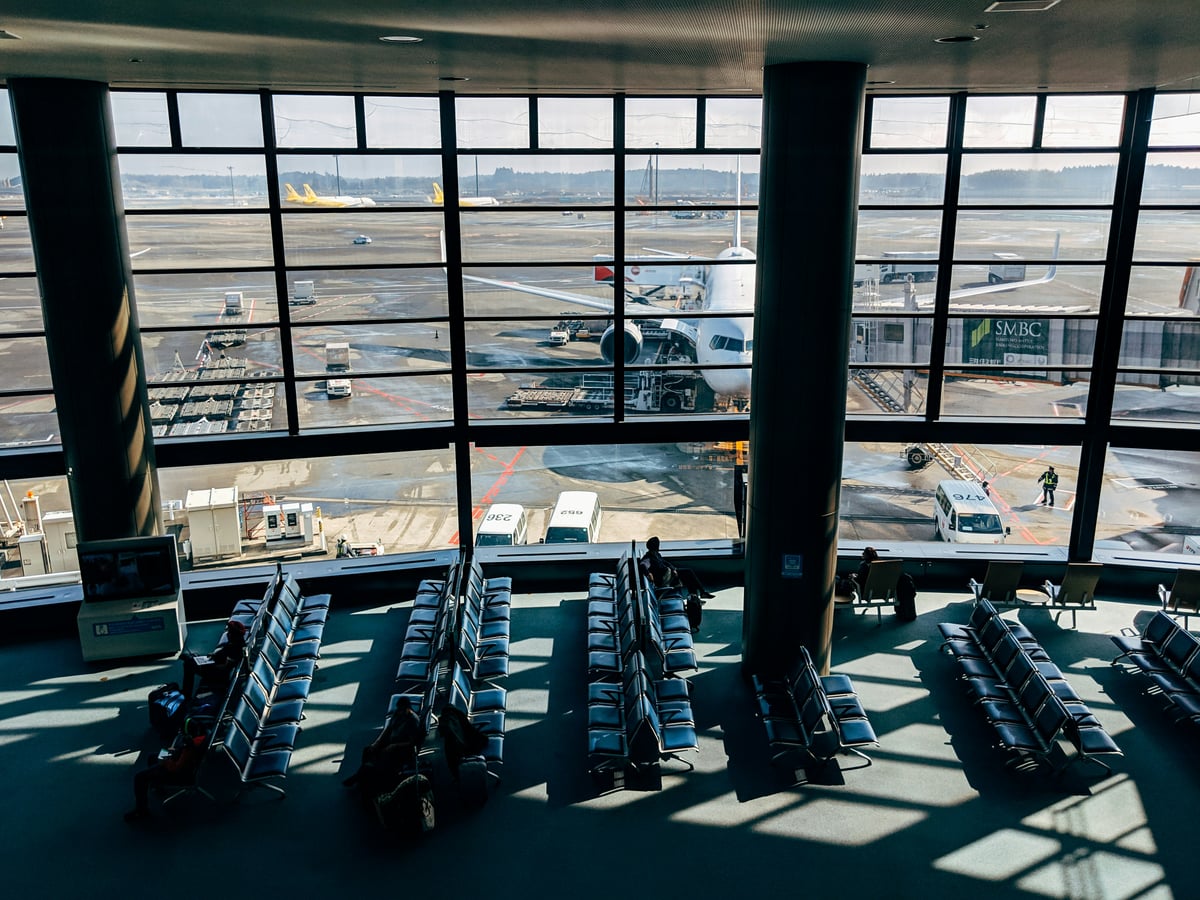
Haneda Airport
羽田空港- Haneda Airport Terminal 3 StationTokyo Monorail Haneda Airport LineKeikyū Airport Line
Tokyo Haneda Airport is one of Japan's busiest aviation hubs, located 14 kilometers south of central Tokyo in Ota City. The airport serves as the primary domestic gateway while handling growing international traffic.
History and Development
Haneda began operations in 1931 as Tokyo Airport, making it one of Asia's oldest commercial airports. Built on reclaimed land in Tokyo Bay, the facility has expanded continuously throughout its nearly century-long history, playing a crucial role during World War II and Japan's post-war aviation recovery.
Major international expansion occurred in the 2000s. Terminal 3, added in 2010 for international flights, transformed Haneda from a domestic hub into a major international gateway. This expansion included a new 2,500-meter runway on artificial islands, bringing the total to four runways.
Terminal Configuration
Haneda operates three passenger terminals with distinct functions. Terminal 1 handles domestic flights for Japan Airlines (JAL) with 18 gates, shops, restaurants, and traditional Japanese design elements. Terminal 2 serves All Nippon Airways (ANA) and domestic carriers with 20 gates and observation decks offering views of aircraft operations and Tokyo Bay.
Terminal 3, the international terminal, features sleek modern architecture with 18 gates, duty-free shopping, diverse restaurants, and cultural exhibitions showcasing Japanese arts and crafts.
Transfer to the City
Tokyo Monorail
Direct Routes:
- 13-18 minutes to Hamamatsucho Station (¥520)
Pros:
- Very frequent (every 4-6 minutes)
- Modern Trains with luggage space
- Not too crowded
- Kids enjoy the monorail experience
Cons:
- Depending on hotel location, couple of transfers needed
- Not available 24/7
Recommended for: Quick city access, tourists with JR Pass
Keikyu Airport Line
Direct Routes:
- 17 minutes to Shinagawa Station (¥330)
Pros:
- Very frequent (every 5-10 minutes)
- Extensive transfer options
- Spacious train with luggage racks
Cons:
- Depending on hotel location, couple of transfers needed
- Not available 24/7
Recommended for: Travelers staying in central Tokyo, budget-conscious
Airport Limousine Bus
Direct Routes:
- 30 minutes to Yokohama Station (¥650)
- 40 minutes to Tokyo Station (¥1,200)
- 40 minutes to Tokyo Disney Resort® (¥1,300)
Pros:
- Door-to-door (to many hotels)
- Comfortable seating
- Lots of luggage space
- Toilet onboard
Cons:
- Slower than the train options
- More expensive than the train options
- Not available 24/7
Recommended for: Heavy luggage, traveling with children, hotel drop-offs
Taxi
Direct Routes:
- To Tokyo Area (~¥8,200 - ¥14,400)
Pros:
- Door-to-door
- Available 24/7
- Sufficient luggage space
Cons:
- Expensive
- Depending on Group / Family size may be unconvenient
Recommended for: Late arrivals, business travelers, when convenience outweighs cost
Ride-sharing / Airport Shuttle Services
Direct Routes:
- To Tokyo Area (¥1,500 - ¥3,000)
Pros:
- Door-to-door (to many hotels)
- Pre-bookable
- Offer Meet-and-greet
- Sufficient luggage space
Cons:
- Slower option
- Depending on Group / Family size may be unconvenient
Recommendations by situation
- Budget travelers: Keikyu Airport Line
- Families with luggage: Airport Limousine Bus
- Business/time-sensitive: Tokyo Monorail to Yamanote Line
- Late night arrivals: Taxi (trains stop around midnight)
- First-time visitors: Airport Limousine Bus for simplicity
All options have English signage and announcements. The trains are generally more reliable time-wise, while buses offer more comfort but can be delayed by traffic.
Activities
- Edo-koji shopping street on the 4th floor of Terminal 1 recreates old Tokyo with traditional shops and restaurants
- Free foot baths and massage chairs scattered throughout
- Quiet seating areas with charging stations
- Observation decks on Terminal 1 (5th floor) and Terminal 2 (5th floor) for plane spotting
- Small museums and art exhibitions that rotate periodically
- Traditional Japanese gardens in Terminal 2
- Free WiFi throughout for catching up on work or entertainment
At Hey Japan!, we strive to keep the places listed on our website as current as possible. However, it is important to note that location owners or management may make changes to their plans, including canceling events, altering opening times, or modifying admission requirements, without prior notice. To ensure that you have the most accurate information, we recommend checking official websites before visiting any location.
Last Updated:











